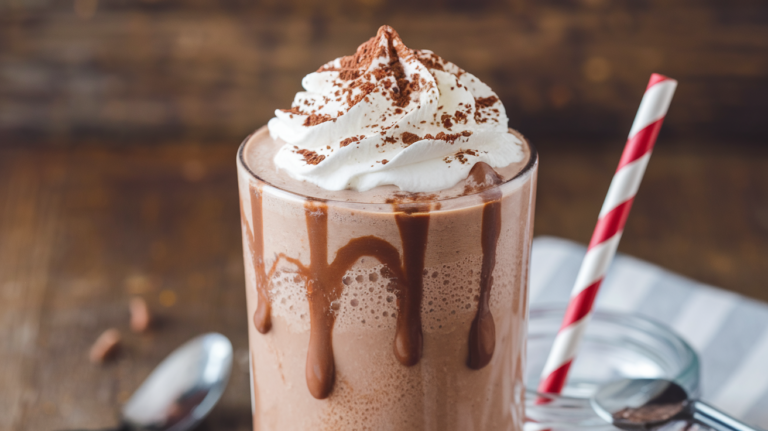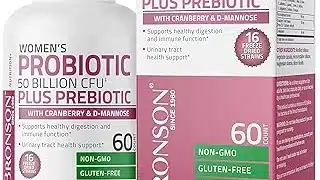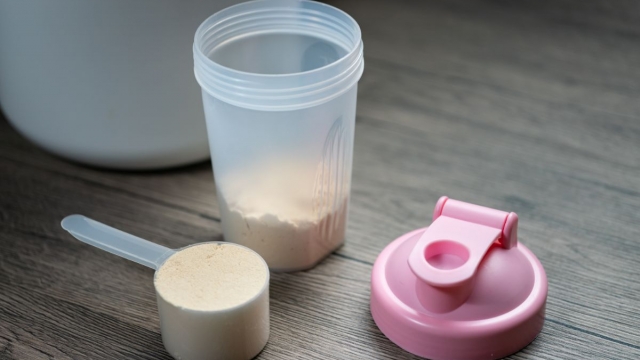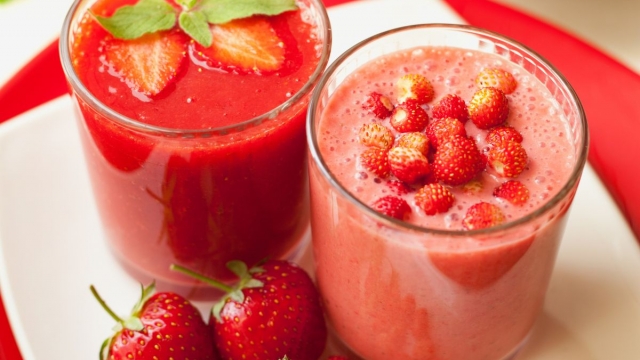Do Protein Shakes Make You Poop?
Yes, protein shakes can make you poop due to ingredients like lactose, artificial sweeteners, and fiber that can affect digestion and bowel movements.
Key Takeaway
- Lactose Content: Protein shakes containing lactose can cause digestive issues in people who are lactose intolerant, leading to increased bowel movements.
- Artificial Sweeteners: Commonly found in protein shakes, artificial sweeteners can have a laxative effect, resulting in more frequent trips to the bathroom.
- Added Fiber: Fiber-enriched protein shakes can promote regular bowel movements, contributing to increased frequency of pooping.
- Protein Adjustment: A sudden spike in protein consumption can affect digestion, causing temporary changes in bowel habits as the body adjusts.

Protein shakes are a popular supplement that many people use to boost their daily protein intake. But while they can be great for helping you reach your fitness goals, there’s one side effect that some people may not be aware of: do protein shakes make you poop?
If you’ve ever wondered if drinking a protein shake will give you an unexpected trip to the bathroom, read on to find out.
What Exactly Are Protein Shakes?
Protein shakes have proven to be a great way for fitness enthusiasts, as well as anybody looking to increase their daily protein intake, to easily do so.
It’s also been found that most of the prepackaged protein shakes on the market contain whey protein isolate, which is a cow milk extract with a collection of globular proteins isolated from the liquid component.
For those looking for an easy way to increase their daily protein consumption, the convenience factor of these products makes them desirable.
However, it’s important to note that there could be potential risks that may arise after long-term use of these shakes.
Can Protein Shakes Make You Need The Toilet More?
The short answer is yes, protein shakes can make you poop. This is because they contain ingredients that are difficult for your body to digest and can cause gastrointestinal distress.
- The most common culprits are whey and casein proteins, which are both common in popular protein shake brands.
- These proteins can cause your intestines to produce excess gas, leading to bloating, cramps, and even diarrhea.
- It’s important to note that this isn’t an issue for everyone who consumes protein shakes.
- For some people, the added proteins can be digested without any noticeable side effects; however, it is possible to experience digestive issues after drinking protein shakes.
How Do Proteins Affect Your Bowel Movements?
When it comes to your poop, protein plays an essential role. Eating too much protein can lead to constipation since the body is unable to process and absorb all the proteins from the food.
This can cause hard stools, abdominal discomfort or pain, bloating, and other digestive issues.
On the other hand, not enough protein in your diet can also cause loose stools or diarrhea due to a lack of dietary fiber and water. Maintaining a balanced intake of protein is an important part of good digestive health.
What Is The Link Between Bowel Movements And Protein?
The connection between protein and bowel movements is strong. When we eat a high-protein meal, the proteins are broken down into various compounds.
One of these byproducts is sulfates, which can act as a laxative and stimulate the bowels to move. This means that eating protein can lead to more frequent trips to the bathroom following meals.
- In addition, some types of proteins may be more difficult for the body to digest than others.
- This extra strain can produce even more waste in the form of poop after meals where a lot of protein was consumed.
- A good way to balance this out is to eat a variety of proteins with different levels of difficulty when it comes to digestion – combining ones that are easy on the stomach with ones that require more effort to break down.
- This will help keep things moving smoothly while also ensuring you get all the essential nutrients you need.

Are There Any Digestive Issues Associated With Protein Shake Consumption?
Consuming too much protein in one sitting can cause some uncomfortable digestive issues. One of the most common side effects is constipation, especially when liquid forms of protein like a protein shake are consumed.
This is because the body is forced to try and digest large amounts of protein at once, leading to dehydration, which can result in hard and dry stools. Diarrhea can also occur, although it is less common.
Lactose Intolerance
People who suffer from lactose intolerance often have unpleasant gastrointestinal symptoms when consuming whey protein powder.
With that being said, it is important to recognize which protein powders are dairy-free. Good alternatives to whey protein powder can be purchased in the form of a non-dairy protein powder or a Protein Water, made with collagen peptides.
- Most traditional protein shakes and powders contain milk proteins like whey, but this can pose a major problem for those with lactose intolerance, as their body does not produce enough lactase – an enzyme used to digest lactose.
Decreased Intake Of Fiber
When you ingest a protein shake, there are two primary pieces of fiber that are present. These two types of fiber are soluble and insoluble.
The insoluble fiber helps to keep your gut healthy by absorbing toxins and by helping to normalize bowel movements.
Meanwhile, the soluble fiber helps to increase the feeling of fullness after consuming shakes, as well as slows down the absorption of other nutrients into the body.
When you skimp on your fiber intake, it can have a negative impact on many aspects of your health.
In particular, low-fiber diets can lead to constipation as the food tends to travel down your gut at a delayed pace. This process can lead to excessive moisture being absorbed from the gut lumen, which can make your stools dry and extremely hard to pass.
Final Thoughts
Do protein shakes make you poop? Yes, in some cases. It is possible for protein shakes to cause digestive issues such as constipation and diarrhea due to the high protein content of the drink.
Additionally, those with lactose intolerance may suffer from unpleasant gastrointestinal symptoms after consuming whey protein powder.
Explore Also:
Creativehouseblog
Dietsheriff
Gigasecurehome
It is important to remember that it is beneficial to have a balanced diet that includes both soluble and insoluble fiber to help keep your gut healthy and regular.
Frequently Asked Questions
How Much Protein Should You Be Having Every Day?
Although there is no exact standard for how much protein should be consumed per day, the Recommended Dietary Allowance for people over 19 years old is 0.36 grams per pound per day.
Depending on your fitness goals and other lifestyle factors, you will likely need more or less than this, so speak with your doctor first before upping your daily consumption of protein shakes.
Other Articles To Read
6 Best Dairy Free Protein Shakes To Keep You Fit – Are you looking for some dairy free protein shakes which can help you to keep fit? We’ve got everything you need with this comprehensive list of the best!
9 Best Sugar Free Protein Shakes To Keep You Fit – Protein shakes are often packed full of added sugar, so what can you do if you want to avoid sugar? Try one of these awesome recipes that will delight you.
Best Meals To Replace With A Health Shake – What You Need To Know – Are you wondering how you might be able to replace meals with a health shake? We’ve got what you need to know in this very comprehensive guide!






